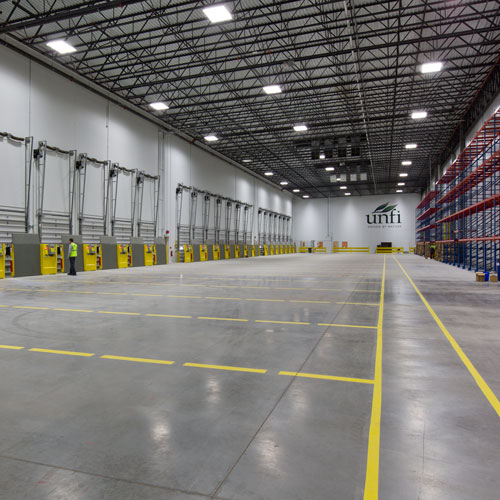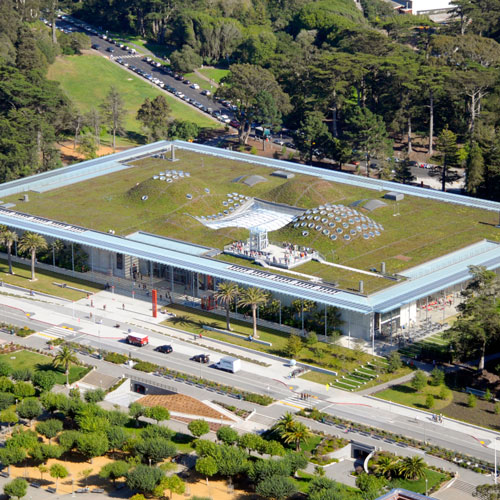
RioCan has only been active in the US market for a few years. Can you tell us a bit about how it got started here and how you came aboard?
Initially, RioCan entered the US market through joint ventures so [that] it could learn from partners before deciding to branch into the US market on its own. After a couple of years in the US market—but with partners managing the properties—RioCan made the call to buy out its joint-venture partners for 26 properties in the Northeast. We opened our first US office in December 2012, and I was in the first wave of hires to staff the new office. It’s been incredible to feel like we’re entrepreneurs in a new venture—but with the backing of a very well-established, large company. In October 2013, we added a large portfolio of properties in Texas.
What do you think led the company to peg you for the job?
I think what was attractive about my background was the fact that I had managed large-scale projects and had a fairly wide level of experience in many different areas. I wasn’t just a real estate lawyer; I also knew the ins and outs of corporate matters and other kinds of issues that can come up day to day in a large company: HR matters, privacy issues, social media issues, marketing issues.
It sounds like you hit the ground running. What was the state of affairs when you came aboard?
On day one, there were leasing files but nothing more than that, so I really had to start from scratch. I didn’t have, for example, title documents or mortgages, so we had to locate all that. People had questions for me such as, “On this particular property, where is the boundary? What part are we responsible for maintaining versus the adjacent landowner?” And so on. I needed to quickly locate documents and create binders for each property in order to take the next step and be able to respond to these questions.
And what was your process for establishing a corporate structure?
We had to develop forms to use and procedures going forward. RioCan is a huge company with 300-plus shopping centers, so it has a standard form of lease, lease amendment, assignment, etcetera. Some of those forms wouldn’t work in the US, though. We have different laws here, obviously, different remedies, so I had to create versions that would work here, and I had to do it quickly.
Straddling the
49th Parallel
Linda Madway breaks down the subtle differences between the US and Canadian real estate industries:
Terminology
• Condemnation (US) = Expropriation (CA)
• Guarantor (US) = Indemnifier (CA)
Perceptions & Expectations
• Canada is less litigious than America
• Canadian regulations make lease-up, dispossession, and other aspects of
real estate work happen more quickly
Contracts & Business Practices
• A short-form agreement to lease, which does not contain all the detailed lease terms, is binding in Canada
• CAM rates are based on actual expenses in RioCan’s Canadian portfolio; they aren’t fixed
• Canadian contracts lack references to legislation such as the Patriot Act—legislation that forces real estate companies to take steps to avoid dealing with “prohibited persons”
There was a translation that occurred, so to speak.
Yes, there are subtle differences between the two countries. There are differences in spelling, for example. The word “shopping center” is spelled “c-e-n-t-r-e” in Canada, and “check” is “c-h-e-q-u-e” in Canada. There were other differences in their legal forms with spelling and terminology that I had to change. We had to make sure that our leases were ones that a tenant in the US would find acceptable and wouldn’t refuse for being too different from the usual market standards.
Do you need to speak French for your job?
Before I even knew about this opportunity, I’d started to study French, which a lot of people assumed was because of the job. But of course in Toronto, they don’t speak French. The job and my new hobby were completely unrelated. Learning French was just an interest that I always had. I was actually in France at an immersion program at the time I received the job offer from RioCan.
And how has it been, working for a Canadian company? Do you have much interaction with your Canadian counterparts?
There is a lot of interaction, and I love it. I have only wonderful things to say about Canadians. There is a spirit of, “We are in this together. Your success is my success.” You see competition when it comes to things like hockey pools, and you see people kid each other about certain foods, like poutine—but all in the most wonderfully spirited manner.
Now that you have the corporate structure in order, what’s your day-to-day work like?
The bulk of my day-to-day is leasing, but our department is also involved with corporate matters, mortgage-financing transactions, and a steady flow of other matters such as dealing with adjacent land owners who might want to drain onto our parcel, for example, or easement matters, cross-parking issues—things of that sort. And sometimes we also get involved with the municipalities on zoning matters or land-development issues. We also have tenants who default, and we have to pursue litigation. So, my day-to-day is always quite interesting.
How is the recovery of the US real estate market impacting your operations at this point? Is it at all?
Prices for shopping centers have really gone up at this point. There is a lot of competition for acquiring good shopping center properties, which I would take to be a good sign for the economy. In some of the properties, we have vacancies to fill; there is always a shuffling game going on with tenants. You don’t want too much of the same kind of use; you want to branch out into new uses to try to bring as many people as possible into the center. We’re working very hard in these centers to position them, to fill them. The number of prospects speaks well to the state of the economy, in my mind.
And there must be regional differences that come into play with this.
There is a difference between what I see in the Northeast versus Texas. For example, there is a lease we have in Texas to a beef jerky outlet. That’s not something that’s necessarily going to fly in Pennsylvania but will fly in Texas. So, there are different kinds of uses you might find in one area versus another.
What’s next for RioCan in America?
We plan to stay with shopping centers. It is what we know and what we love—though in Canada, going forward, we will be doing some residential. Geographically, we’ll go where the opportunities are.


